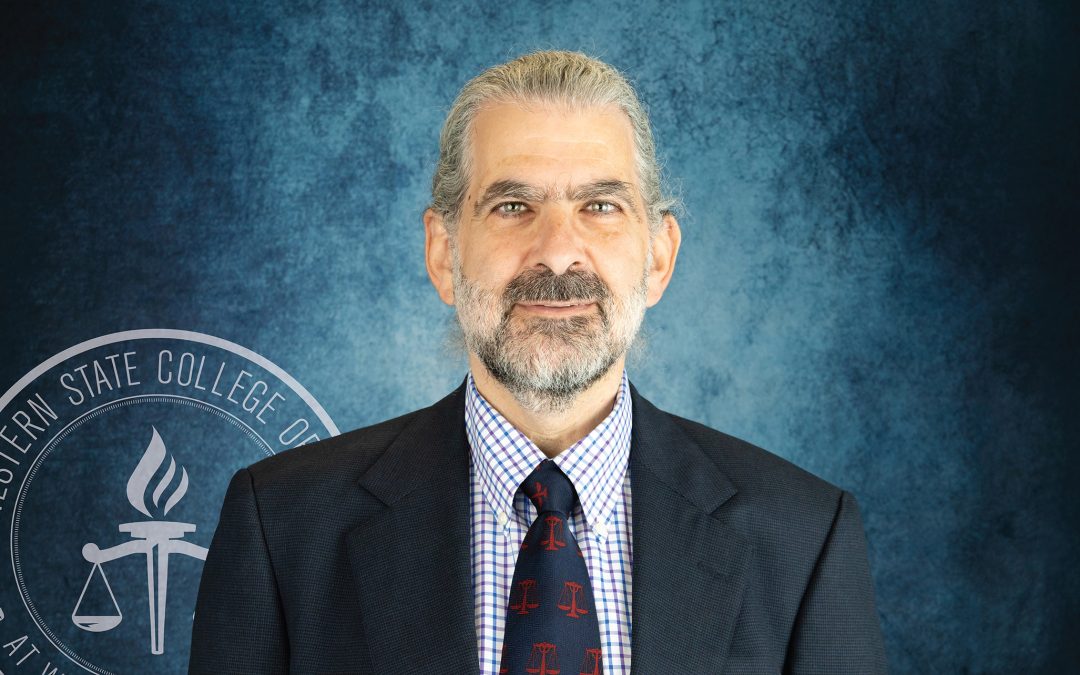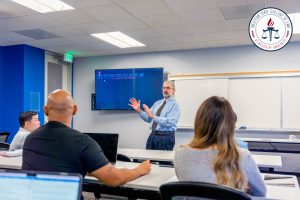Dean Paul Arshagouni has carved out a unique and highly esteemed career by combining his passion and expertise in healthcare and the law.
Arshagouni initially studied medicine largely because it was the career he chose as a child. “I said that’s what I wanted to do and I never changed my mind,” he said. “That lasted all the way through medical school.”
In 1988, he graduated with his MD from the University of California – Irvine School of Medicine. After completing his pediatric residency at UCI, Arshagouni spent the next five years at his alma mater, acting as head of a pediatric clinic while teaching medical students and residents. However, he soon realized that much of his work was governed by regulations outside his control.
Arshagouni decided on a career change. “At that time, I was more interested in health policy and why we had the policies we do.” He went on to earn his master’s in public health, with a focus on health policy, from the University of California – Los Angeles (UCLA). By that point, Arshagouni said, he came to the realization that it was the attorneys who set the rules.
In 1999, he graduated from UCLA – School of Law. He actually enjoyed the experience. After graduation, Arshagouni worked for three years in the health law departments of a two large law firms. However, he never expected to work in the field for the rest of his professional life. What transpired was a distinguished career touching on both healthcare and law. Arshagouni’s background now includes health law and policy as well as contracts and property law.
Along with teaching law, Arshagouni spent some time researching and writing academic papers for personal and professional reasons. In 2012, he published an article titled, “Be Fruitful and Multiply, by Other Means, if Necessary: The Time Has Come to Recognize and Enforce Gestational Surrogacy Agreements” in the DePaul Law Review. Arshagouni’s decision to explore the legal aspects of surrogacy stemmed from his personal experience using a surrogate to have his daughter.
At the time, Arshagouni and his partner were living in Michigan where surrogacy contracts were not enforceable. Moreover, engaging in surrogacy could lead to jail time, up to $50,000 in fines, or both. In other states, however, including California where Arshagouni’s daughter was born, the surrogate contract was legally recognized. “The article grew out of that,” Arshagouni explained. “Why are some states prohibiting surrogacy contracts? Should we recognize them nationwide? What regulations are needed?”
Arshagouni continues to pursue research that asks questions regarding medical practices and the law. Currently, he is working on a question regarding informed medical consent, or more precisely, should uniformed consent satisfy the requirements of informed consent. “In order to have any medical procedure you must sign an informed consent, meaning the providers must tell you the diagnosis they’re treating, the treatment options and their recommendations,” he said. “Can someone consent to something when they don’t know all the information? Should we recognize uninformed consent for patients who know that there’s information that they don’t know but have decided to consent anyway?”
Arshagouni’s background in law and experience as a healthcare provider has afforded him a unique view into such subjects. He has incorporated this knowledge and expertise into his teaching. Having educated both medical students and law students, Arshagouni believes the ultimate goal for professors is to empower their students to become independent of them. “We are teaching tools and a way of thinking that allows the student to take that information and learn how to solve problems on their own.”
With a career that spans decades, Arshagouni still remains curious and expects his students to follow suit. “One thing students need to understand is that they will always be learning,” he said. “The law changes. What you learned in school won’t be the same law you deal with 10 years out but how you understand and approach the law sticks with you.”
Whether researching surrogacy law or uninformed medical consent Arshagouni emphasizes that when it comes to law, professionalism and ethics are imperative. “People put their trust in lawyers and depend on their attorneys for all kinds of things,” he said. “Lawyers are important stabilizers of civil society. The rule of law matters. For the most part, the profession is a positive force in society… That’s an important aspect we need to take care of in how we teach the law and how we train attorneys.”


